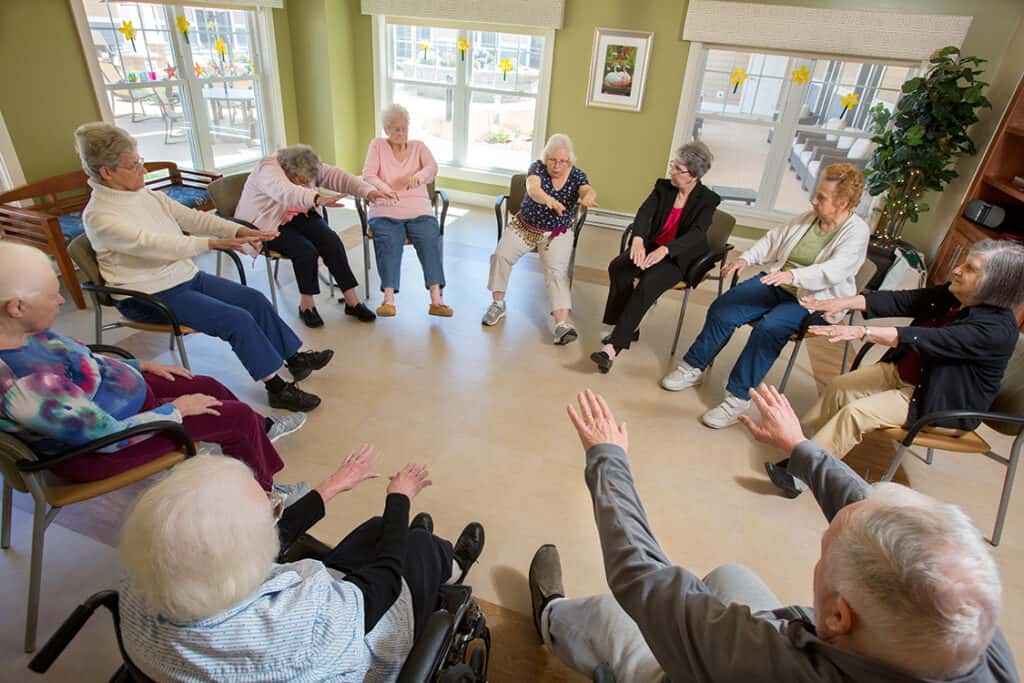Trusted Memory Care facilities providing round-the-clock support and security.
Trusted Memory Care facilities providing round-the-clock support and security.
Blog Article
The Duty of Assisted Living in Giving Specialized Care for Mental Deterioration Sufferers
The arrangement of specialized care for mental deterioration patients within assisted living centers is increasingly identified as a crucial part of efficient mental deterioration monitoring. These environments are created to attend to the special cognitive and psychological difficulties dealt with by people with mental deterioration, providing tailored assistance that advertises safety and well-being.
Recognizing Dementia Care Requirements
Recognizing the treatment requirements of people with mental deterioration is vital for giving reliable assistance and improving their quality of life. Dementia is a modern neurological condition that affects cognitive features such as memory, reasoning, and interaction. Subsequently, individuals with dementia commonly need aid with day-to-day activities, individualized care strategies, and psychological assistance.
Reliable dementia care includes recognizing the one-of-a-kind obstacles faced by each person. This includes comprehending the phases of dementia, which can vary from light cognitive problems to innovative phases requiring thorough support. Care requires may encompass support in handling day-to-day routines, drug adherence, and maintaining social communications to avoid isolation.
Furthermore, sensory stimulation and familiar settings can dramatically improve the well-being of people with dementia. Caregivers should be trained to determine behavior changes and employ approaches customized to each person's preferences and past experiences. Methods such as recognition treatment and memory can help connect efficiently and promote a complacency.
Inevitably, effectively addressing the treatment requirements of individuals with mental deterioration requires a compassionate technique, recurring training for caretakers, and a commitment to keeping self-respect and respect throughout the caregiving procedure.
Advantages of Assisted Living

An additional significant advantage is the risk-free and safe and secure atmosphere these facilities offer. Locals profit from features such as secured entrances and monitored common areas, decreasing the danger of wandering and improving general safety and security. Assisted living advertises social interaction amongst locals, fostering a feeling of area and belonging. Engaging with peers can ease sensations of isolation, which prevail in those dealing with dementia.
In enhancement, lots of assisted living facilities use support with daily tasks, such as medication management, showering, and dish preparation. This assistance permits homeowners to preserve their self-reliance while ensuring their health and health are focused on. Ultimately, assisted living offers as a useful source, stabilizing care and autonomy for people with mental deterioration and their households.

Specialized Programs and Tasks
(Dementia Care Charlotte)Identifying the unique requirements of individuals with dementia, several assisted living centers apply customized programs and activities made to improve cognitive function and advertise general health. These programs commonly consist of cognitive excitement activities that involve homeowners in memory video games, puzzles, and reminiscence treatment, which urges the sharing of individual tales and past experiences.
In addition, art and music therapy play considerable roles in promoting imagination and psychological expression (Memory Care). Engaging homeowners in paint, crafting, or songs sessions can supply therapeutic benefits, helping to reduce anxiety and enhance state of mind. Physical tasks, such as gentle workouts and dance sessions, are additionally important, as they promote flexibility and physical wellness while motivating social interaction amongst locals
Structured everyday regimens are often established to give a sense of stability and predictability for individuals with mental deterioration. These routines can consist of scheduled meal times, group tasks, and individualized treatment strategies that cater to specific interests and abilities. By developing an enriching environment filled up with customized activities, helped living facilities not only boost the lifestyle for mental deterioration people however additionally promote a sense of community and belonging.
Educated Personnel and Assistance
(Assisted Living Charlotte)In assisted living centers, the visibility of qualified staff is crucial for supplying effective support to people with read the article dementia. These professionals have specialized understanding and abilities to address the unique needs of residents, guaranteeing their security, convenience, and wellness. Staff participants obtain training in mental deterioration treatment, that includes comprehending the development of the condition, identifying behavioral changes, and employing reliable communication techniques.
In addition, experienced team are geared up to execute customized care plans customized per local's preferences and capacities. This personalized method fosters a feeling of freedom and dignity, allowing homeowners to take part in purposeful activities that boost their lifestyle. The staff additionally play a crucial duty in keeping an eye on wellness and wellness, promptly identifying any modifications in problem that might need medical interest.
Along with direct treatment, qualified team provide psychological assistance to citizens, aiding to minimize feelings of complication and stress and anxiety that often go along with dementia. Their caring approach produces a nurturing atmosphere where homeowners really feel valued and understood - Memory Care. Inevitably, the knowledge and commitment of trained staff are indispensable in providing extensive treatment that fulfills the complex requirements of individuals coping with dementia in assisted living settings
Household Involvement and Resources
Family participation plays a significant role in the care of individuals with dementia in nursing home. Engaging relative in the care procedure not only boosts the emotional wellness of the resident but additionally fosters a collaborative atmosphere where treatment strategies can be tailored to individual needs. Family members can offer important insights right into the preferences, history, and actions of their enjoyed ones, which can notify caregivers and lead to even more personalized treatment techniques.
Additionally, assisted living facilities commonly use sources for family members, such as support teams and academic workshops. These resources can help families recognize mental deterioration, boost interaction methods, and develop coping systems. Involvement in these programs can equip member of the family, furnishing them with the tools needed to support their loved ones effectively.
Furthermore, normal communication between households and personnel is essential. This ongoing discussion permits family members to remain notified concerning their enjoyed one's progression and any adjustments in treatment plans. Inevitably, a strong partnership between families and aided living facilities promotes a setting of trust and understanding, making certain that individuals with dementia receive the specialized treatment they should have while preserving their family members links.
Final Thought
In final thought, aided living centers play a vital duty in resolving the unique requirements of mental deterioration individuals with personalized care and support. Ultimately, assisted living provides vital sources that considerably enhance the high quality of life for those living with dementia.
Report this page